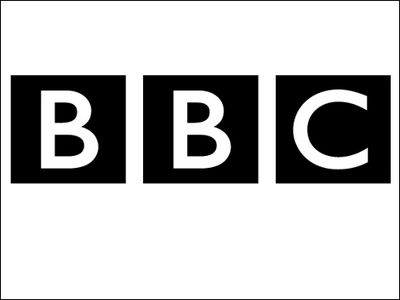科技和BBC
Mashing it up
融為一體
Technology is changing the way radio operates
科技正在改變電臺運營方式
WHEN Radio 1, a BBC music station, launched in the late 1960s teenagers flocked to it. Its presenters, many of whom had previously worked in pirate radio, were brash and it played pop music. Despite fears that radio would be wiped out by television and then by the internet, the medium has proved remarkably resilient. But it is changing its shape to keep up with a younger audience. On November 10th the station launched a channel on iPlayer, the BBC's video-on-demand site. The move was heralded as an “historic moment” by Ben Cooper, the controller of Radio 1.
當BBC音樂電臺第一頻道于20世紀60年代末正式開播時,收聽的青少年們蜂擁而至。該頻道的主持人中有許多人都曾在地下電臺里工作過,他們自以為是,播放著流行音樂。盡管有種種擔憂電臺將被電視然后是網(wǎng)絡擠出市場,但這種媒介被證明是非常具有適應性的。然而為了迎合年輕聽眾的口味,電臺正在改頭換面。11月19號,該電臺在BBC的在線點播網(wǎng)站iPlayer上創(chuàng)建了一個頻道。這一舉動被第一頻道的負責人本·庫珀譽為“歷史性的一刻”。

Between 2008 and 2013 the share of people listening to radio in Britain increased slightly—although the average time spent listening to it has dropped among all of those under 65. But among younger people it is proving far less popular. Since 2008 the amount of time spent listening to the radio by those aged 15- to 24-years-old fell by 13%.
2008年到2013年間,英國收聽電臺廣播的聽眾份額僅小幅度上漲—盡管在65歲以下人群中,平均收聽時間減少了。但在年輕人中,它卻沒那么受歡迎。自2008年以來,15歲到24歲人群收聽廣播的時間減少了13%。
Fewer children grow up with radios in their bedrooms, while social media are chipping away at the time youngsters might spend tuning in, says Simon Terrington, a media analyst. Sites such as Facebook also provide an alternative to the “community” feel of listening to live radio, he adds. And streaming services, such as Spotify, are increasingly popular. As a result the radio accounts for less than a quarter of the time 15 to 24-year-olds spend actively listening to things; but streaming or listening to music accounts for nearly two-thirds of their time.
媒體分析師西蒙·特靈頓說,現(xiàn)在越來越少的孩子房間里會有收音機,取而代之社交媒體正在逐步占據(jù)孩子們聽收音機的時間。他還補充說,像臉書這樣的網(wǎng)站也提供了另一種途徑,來營造如同收聽現(xiàn)場廣播的“社區(qū)”感。像聲破天(Spotify)這樣的流媒體服務越來越風靡。其結(jié)果就是15至24歲群體收聽電臺廣播的時間不到他們主動收聽時間的四分之一,與之相對,流媒體或聽音樂占用了他們約三分之二的時間。
Stations are responding to this changing market by boosting online services and apps. Commercial stations such as Capital and Kiss FM have pages on YouTube and television channels. But the publicly funded BBC is particularly keen to keep younger audiences hooked. Last year the BBC launched its Playlister service, which can also be accessed outside Britain. This helps listeners find music that has been played on radio or television and listen to it on third-party apps, including Spotify. In October more playlists from DJs were also added to it.
電臺正以提供在線服務和應用程序的方式來應對這不斷變化的市場。像Capital和Kiss FM這樣的商業(yè)電臺已經(jīng)在Youtube和電視頻道上有了主頁。但公共電臺BBC尤為急切想要留住年輕聽眾。去年BBC推出了播放列表服務(Playlist Service),即使在英國之外的地區(qū)也可以使用。這使得聽眾可以搜索到在電臺、電視上播放過的歌曲,并在包括Spotify的第三方應用程序上收聽。十月份,更多來自DJ們的歌單被添加到了播放列表。
“We're trying to create a new music experience,” says Mark Friend, the head of digital radio at the BBC. This requires a radio station to be present on lots of different media, such as YouTube, and to be actively engaging listeners through social media. More content—through archive material, or online-only videos—will be “mashed up” with live shows. Radio 1 already sponsors several live music events. Rather than being just a radio station, it has become a brand.
BBC數(shù)字電臺的主席馬克·弗蘭德說:”我們正在嘗試創(chuàng)造一種新的音樂體驗。”這需要電臺在很多不同的媒介上露面,比如說Youtube,而且還要通過社交媒體積極吸引聽眾。通過歷史材料或在線視頻獲取的更多內(nèi)容將和現(xiàn)場直播“混搭”。第一頻道已經(jīng)贊助了幾次現(xiàn)場音樂節(jié)。它不再只是一個電臺,而是一個品牌。
Other stations will also have to adapt. “Radio 4 cannot afford to be just a linear playout any more either,” says Mr Friend (referring to Radio 1's more cerebral cousin). This is an opportunity for the BBC to try to gain new audiences. But it also poses a problem. As it becomes more and more like its rivals, its distinctiveness becomes weaker—as may the argument to keep pumping it with public money.
其他的電臺也需要適應。“第四頻道也不能僅進行線性播出了。”弗蘭德說(他指的是第一頻道更為嚴肅正式的兄弟臺)。這是BBC獲取新聽眾的機會。但這也帶來了問題。當它變得越來越像自己的對手時,自己的獨到之處就被削弱了—就像關于是否還應該為它提供公共資金的爭論一樣。譯者:王穎 校對:張娣












